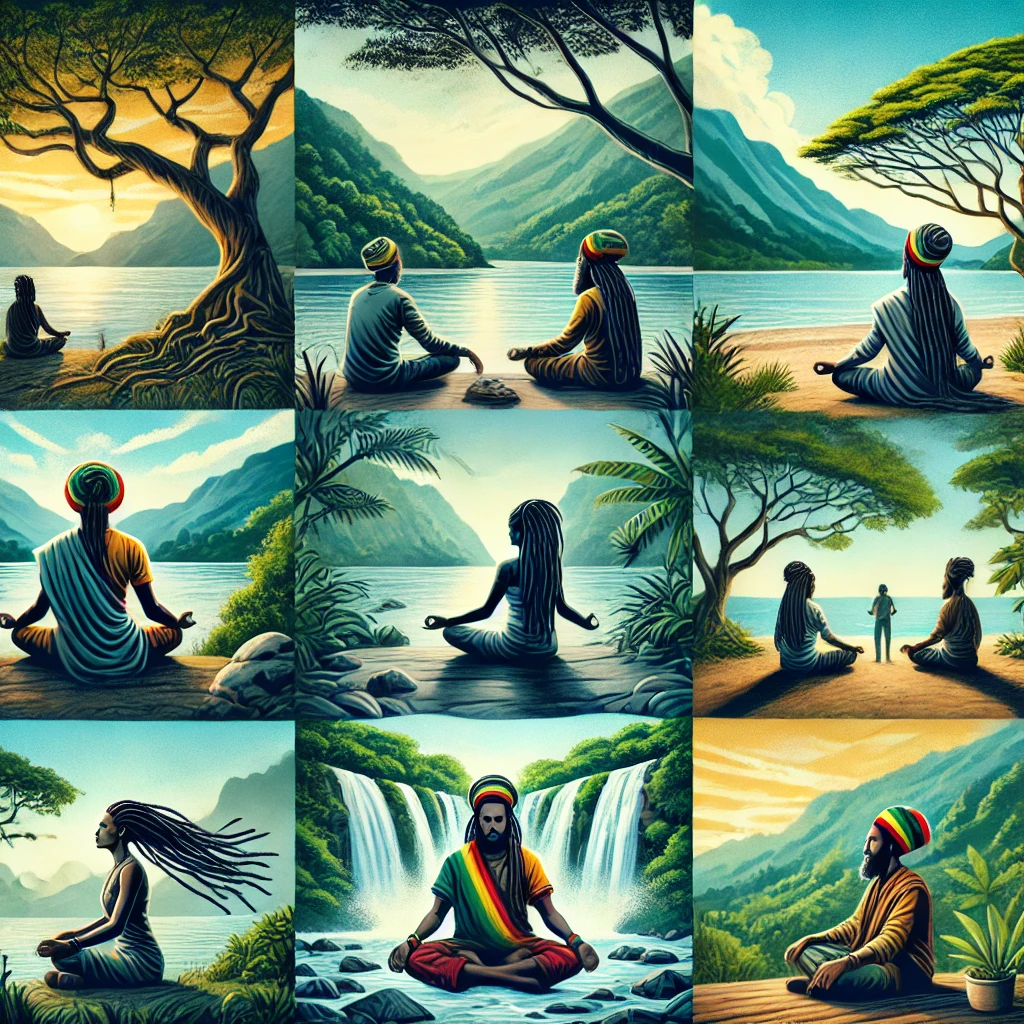Bless up, my brethren and sistren! Today, mi want to share di significance of meditation in Rastafarianism. Meditation is a powerful practice dat helps Rastafarians connect wid Jah, find inner peace, and stay grounded in di midst of life’s challenges.
A Spiritual Practice
For Rastafarians, meditation is a deeply spiritual practice. It’s a time to commune wid Jah, di Almighty, and seek guidance and wisdom. Through meditation, we cultivate a closer relationship wid Jah and align ourselves wid His will.
The Role of Prayer
Meditation often goes hand in hand wid prayer. Rastafarians use prayer to give thanks, seek blessings, and ask for protection. During meditation, prayer becomes a way to focus di mind and heart on Jah, creating a space for divine connection and reflection.
Finding Inner Peace
In di hustle and bustle of daily life, meditation offers a sanctuary of peace and tranquility. It allows Rastafarians to step back from di chaos and find a calm center within. Dis inner peace is essential for maintaining balance and harmony in our lives.
Techniques for Meditation
Different techniques can be used for meditation, depending on what feels most natural and effective. Some Rastafarians prefer silent meditation, where they sit quietly and focus on their breath or a specific mantra. Others might use guided meditation, listening to soothing words or music dat helps them relax and focus.
Staying Grounded
Meditation helps Rastafarians stay grounded and connected to di present moment. It’s easy to get caught up in worries about di future or regrets about di past, but meditation brings us back to now. By staying present, we can navigate life’s challenges wid clarity and grace.
Visualization
Visualization is a powerful tool in meditation. Rastafarians might visualize a peaceful scene in nature, such as a lush forest or a tranquil beach, to help them relax and center themselves. Dis imagery can be a reminder of Jah’s creation and di beauty dat surrounds us.
Healing and Wellness
Meditation also plays a role in physical and mental wellness. It has been shown to reduce stress, lower blood pressure, and improve overall health. For Rastafarians, meditation is a holistic practice dat nurtures di body, mind, and spirit.
Breathwork
Breathwork is an important aspect of meditation. By focusing on deep, slow breaths, Rastafarians can calm their nervous system and promote relaxation. Dis practice of conscious breathing helps to release tension and bring a sense of peace and well-being.
Connecting wid Nature
Rastafarians often meditate in natural settings, such as by di sea, in di mountains, or under a tree. Nature provides a serene and inspiring backdrop for meditation, enhancing di sense of connection to Jah and di earth.
Outdoor Meditation
Meditating outdoors allows Rastafarians to feel di elements and connect to di natural rhythms of life. Di sound of waves, di rustle of leaves, or di warmth of di sun can all enhance di meditation experience, making it more profound and grounding.
Community and Unity
Meditation is not just a solitary practice; it can also be a communal activity. Rastafarian gatherings often include group meditations, where brethren and sistren come together to meditate and pray. Dis shared experience fosters a sense of unity and collective strength.
Group Meditation
Group meditation amplifies di positive energy and creates a powerful sense of community. It’s a time to support each other, share intentions, and strengthen di bonds of brotherhood and sisterhood. Together, we can elevate our spirits and deepen our connection to Jah.
Conclusion
Meditation is a cornerstone of Rastafarian spiritual practice. It helps us connect wid Jah, find inner peace, stay grounded, and promote overall wellness. Whether alone or in a group, meditation is a powerful tool for nurturing di soul and living a balanced, harmonious life. Embrace di practice of meditation and feel di positive transformations it brings. One love!

